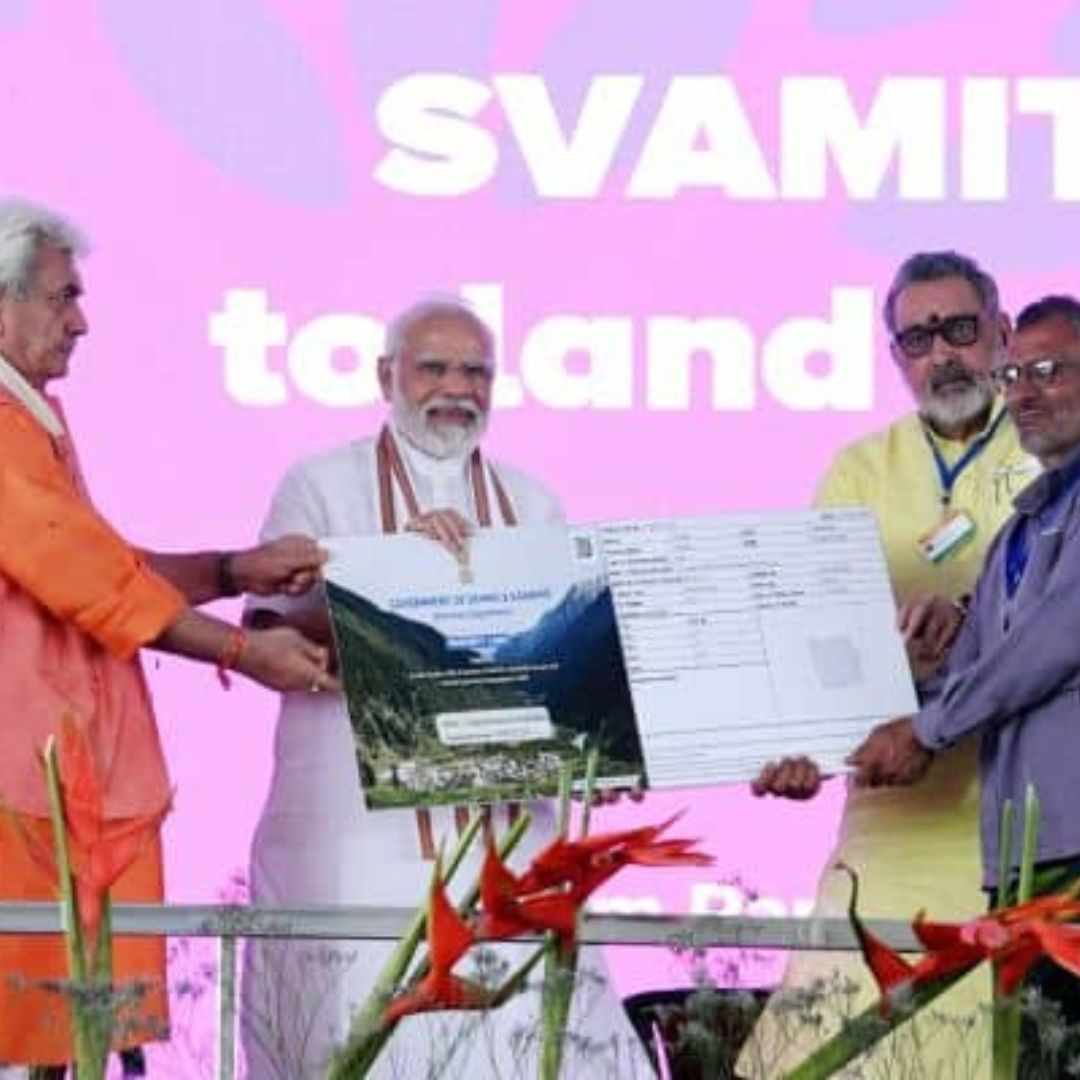In a significant address, Prime Minister Narendra Modi reflects on the historic verdict delivered by the Honorable Supreme Court of India on December 11, validating the abrogation of Articles 370 and 35(A). The Prime Minister emphasizes the importance of upholding India’s sovereignty and integrity while acknowledging the picturesque beauty of the Jammu, Kashmir, and Ladakh regions. He delves into the historical context, societal challenges, and the transformative journey aimed at fostering development, unity, and justice for the people of these regions.
Historic Supreme Court Verdict and Constitutional Integration:
PM Modi commends the Honorable Supreme Court’s historic verdict, asserting that the decision to abrogate Articles 370 and 35(A) was aimed at enhancing constitutional integration, not disintegration. The judgment, according to the Prime Minister, upholds the sovereignty and integrity of India, a sentiment cherished by every Indian.
Challenges in Jammu, Kashmir, and Ladakh:
Prime Minister Modi paints a vivid picture of the enchanting landscapes of Jammu, Kashmir, and Ladakh, acknowledging the region’s historical significance as a source of inspiration for poets and artists. However, he notes the decades-long violence and instability that marred these areas, attributing the challenges to historical colonization, economic dependence, and a society marred by confusion.
A Call for Clear Vision and Unity:
Reflecting on the aftermath of India’s independence, PM Modi points out the missed opportunity for a new beginning in national unity. Instead, a confused societal approach persisted, causing long-term national interests to be overlooked. The societal confusion, he suggests, led to significant losses for Jammu and Kashmir.
Personal Involvement and Commitment:
PM Modi shares his connection with the Jammu and Kashmir issue, emphasizing its significance beyond politics. He pays homage to Dr. Syama Prasad Mukherjee and Atal Bihari Vajpayee, who made significant sacrifices for the cause. Modi expresses a deep-seated belief that the situation in Jammu and Kashmir was a betrayal of the nation and its people, inspiring his commitment to eradicate this injustice.
Abolishing Hurdles for Development:
Articles 370 and 35(A) are described as significant hurdles for Jammu, Kashmir, and Ladakh. PM Modi contends that these articles acted as an unbreakable wall, causing pain and hindrance to the poor, deprived, Dalits, backward classes, and women. The distance created by these articles, he argues, hindered the people of the region from enjoying the same rights and development as their fellow countrymen.
Development as a Priority:
Drawing from his decades-long association with the Jammu and Kashmir issue, PM Modi asserts that development and quality of life were the primary aspirations of the people. He highlights the government’s three-pronged approach – understanding citizen concerns, building mutual trust, and prioritizing development and sustained growth.
Sensitive Governance and Crisis Response:
Prime Minister Modi recalls instances of sensitive governance, including his visit to assess flood damage in 2014 and the announcement of a special assistance package for rehabilitation. He emphasizes the people’s desire for development and freedom from decades of corruption, underlining the government’s commitment to addressing these concerns.
In sum, PM Modi outlines a vision for Jammu, Kashmir, and Ladakh centered on development, unity, and justice, leveraging the historic verdict as a catalyst for transformative change.




